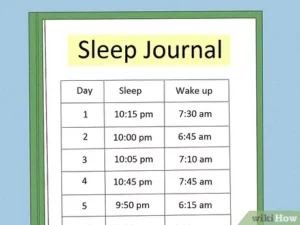 Tips for Better Sleep: A Comprehensive Guide to Restful Nights
Tips for Better Sleep: A Comprehensive Guide to Restful Nights
Tips for Better Sleep
In today’s fast-paced world, achieving quality sleep can often seem elusive. However, good sleep is crucial for our overall health and well-being. Here are some practical tips to help you improve your sleep quality and wake up feeling refreshed.
 1. Stick to a Sleep Schedule
1. Stick to a Sleep Schedule
One of the most effective ways to regulate your body’s internal clock is to maintain a consistent sleep schedule. Try to go to bed and wake up at the same time every day, even on weekends. This helps to regulate your body’s sleep-wake cycle and can significantly improve the quality of your sleep over time.
 2. Create a Relaxing Bedtime Routine (Tips for Better Sleep)
2. Create a Relaxing Bedtime Routine (Tips for Better Sleep)
Developing a bedtime routine signals to your body that it’s time to wind down and prepare for sleep. This routine can include activities such as reading a book, taking a warm bath, or practicing relaxation exercises like deep breathing or meditation. Avoid stimulating activities like using electronic devices right before bed, as the blue light emitted can interfere with your sleep hormones.
 3. Optimize Your Sleep Environment (Tips for Better Sleep)
3. Optimize Your Sleep Environment (Tips for Better Sleep)
Ensure that your bedroom is conducive to sleep. Keep the room cool, quiet, and dark to promote better sleep. Invest in a comfortable mattress and pillows that support your sleeping position. Consider using blackout curtains or an eye mask to block out any unwanted light that may disrupt your sleep.
 4. Limit Exposure to Screens Before Bed
4. Limit Exposure to Screens Before Bed
The light emitted by screens can interfere with your body’s production of melatonin, a hormone that regulates sleep. Aim to avoid screens such as smartphones, tablets, and computers at least an hour before bedtime. Instead, opt for activities that promote relaxation and help signal to your body that it’s time to sleep.
 5. Watch Your Diet and Avoid Stimulants
5. Watch Your Diet and Avoid Stimulants
What you eat and drink can significantly impact your sleep quality. Avoid large meals, caffeine, and nicotine close to bedtime, as these can interfere with your ability to fall asleep and stay asleep. Instead, opt for light snacks if you’re hungry before bed and choose calming herbal teas like chamomile to promote relaxation.
 6. Exercise Regularly
6. Exercise Regularly
Regular physical activity can help you fall asleep faster and enjoy deeper sleep. Aim for at least 30 minutes of moderate exercise most days of the week, but try to avoid vigorous exercise close to bedtime, as it may have the opposite effect and stimulate your body instead of relaxing it.
 7. Manage Stress and Anxiety (Tips for Better Sleep)
7. Manage Stress and Anxiety (Tips for Better Sleep)
Stress and anxiety can significantly impact your ability to sleep well. Practice stress-reducing techniques such as mindfulness meditation, progressive muscle relaxation, or journaling before bed to calm your mind and prepare for sleep. If you find yourself unable to sleep due to racing thoughts, try writing them down to address them the next day.
 8. Limit Daytime Naps
8. Limit Daytime Naps
While short naps can be beneficial for some people, especially if you didn’t get enough sleep the night before, long or irregular daytime naps can interfere with your nighttime sleep. If you need to nap, aim for a short nap of 20-30 minutes early in the afternoon to avoid disrupting your sleep-wake cycle.
 9. Seek Professional Help if Needed (Tips for Better Sleep)
9. Seek Professional Help if Needed (Tips for Better Sleep)
If you consistently struggle with sleep despite trying these tips, it may be helpful to consult a healthcare professional or sleep specialist. They can help identify underlying sleep disorders or provide additional strategies to improve your sleep quality.
Conclusion
Achieving better sleep requires commitment and consistency, but the benefits are well worth the effort. By implementing these tips into your daily routine, you can enhance your sleep quality, boost your overall health, and improve your quality of life. Remember, good sleep is essential for your physical and mental well-being, so prioritize it as part of your self-care routine.